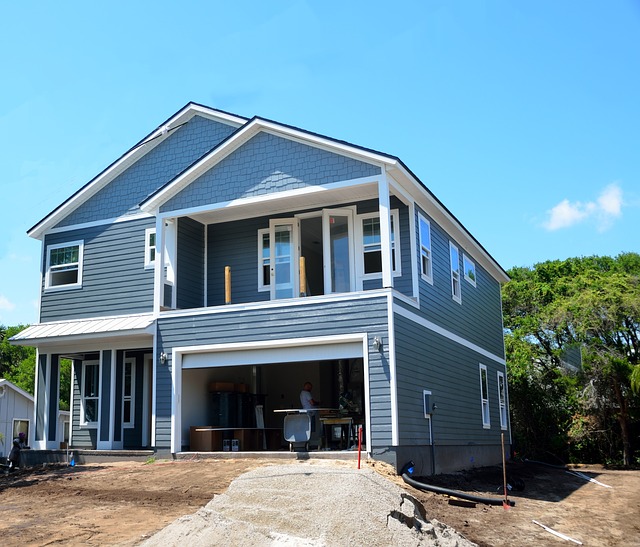
David Hakimi
By David Hakimi
This article is part one in a two-part series on how to sell newly-constructed homes. Read part two here.
It’s no secret that the housing market has fully rebounded over the past eight years and is now experiencing tremendous growth. In fact, demand in many major metropolitan markets has clearly outpaced supply. In numerous cities, builders have been spurred to start churning out new homes as fast as they can build them.
According to economic data from the U.S. Census Bureau, builders are now producing approximately 1.18 million homes per year nationally. Given the proliferation of new construction, new agents entering the business will be wise to quickly familiarize themselves with the key differences between selling existing homes and brand-new homes.
Understand the key differences between a buyer’s agent’s duties when dealing with re-sales vs. new-construction transactions.
There will always be some difficult deals that require extra steps on the agent’s behalf, but for the most part, a buyer agent’s primary responsibilities on a re-sale transaction typically revolve around the same five general functions:
- Structuring the offer terms competitively to compete against other offers, and lining up any contingent sales that must occur concurrently.
- Researching price by analyzing comparable sales to maximize the chances the home will sufficiently appraise, and ensuring that the buyer isn’t over-paying.
- Negotiating price, post-inspection repairs, and concessions.
- Managing deadlines such as loan application, earnest money delivery, appraisal scheduling, title review, review of HOA documents, binding homeowner’s insurance, contingent sales, and closing.
- Protecting the buyer’s earnest money, by recognizing any inability (or unwillingness) of the buyer to comply with a date outlined in the contract, and working to either extend that deadline or terminate the offer in time.
By comparison, an agent’s primary role in a new-construction transaction is a little different, and can generally be summarized by the following eight functions:

@paulbr75, 2017. pixabay.com
- Interpreting the buyer’s rights outlined in the builder contracts, and noting any crucial deadlines relating to the buyer’s ability to terminate without forfeiture of the deposit money.
- Negotiating the price, incentives, and inclusions. Just like a car dealership, new home salespeople can often offer extra inclusions, or discounts to secure a contract.
- Solidifying the price the home will come to after lot premiums, design center options, structural upgrades, low voltage options, appliances, landscaping, and builder incentives have all been factored in. The builder’s advertised “base price” is generally tens of thousands of dollars below the final completed price, once these factors are added together.
- Analyzing the meaning of soil surveys/engineering reports pertaining to the chosen lot, or reading blueprints and floorplans. The amount of expansive soils found during the soil survey, determine the type of foundation that the engineer will require the home has to be constructed on. Slab-on-grade foundations can be used when the expansive soil content is low, but costlier pier-and-beam foundations must be used when high amounts are present.
- Advising the buyer on making the best use of the budget. Choices like which lot, what structural upgrades, or which design center options, can all make-or-break a buyer’s budget. Some cosmetic options can be done more affordably after closing, while some structural items cannot easily be done at all after the house is completed. Most builders will also require additional deposit money, once a buyer’s design center choices exceed a set amount. This can be up to 50 percent of the cost of the upgrades, once the cost of the options goes past a predetermined dollar amount.
- Questioning the builder’s sales rep about all the inclusions, contingency terms, financing and incentives that a buyer might not think of on their own until it’s too late. The model homes are packed with every imaginable upgrade, so it’s extremely crucial to ask which features are included with the basic home, and which items are upgrades. Even basic things like lawn grass, sprinklers and fences in the back yard, are often not included. Refrigerators, garage door openers, window blinds, and central air conditioners aren’t always included either. See my complete “Builder Questionnaire.”
- Accompanying the buyer on the walk-throughs the foreman will conduct at the various stages of construction. Pre-drywall, electrical, low voltage, and the final pre-closing walkthrough for identifying touch-ups. It’s the agent’s job to help hold the builder’s foreman accountable for completing any repairs or necessary corrections discovered at these walk-throughs.
- Protecting the buyer’s earnest money remains a common thread. There aren’t as many crucial deadlines, but there are still a few like the loan application deadline and the contingent sale deadline. It’s your job to make sure the buyer understands them. Also, some builder contracts have verbiage that entitles them to keep a percentage of the deposit, even if the buyer backs out for a legitimate reason defined in their contract. Make sure you and your buyer are clear on this point, so there are no unpleasant surprises.
Selling new-construction is a different process, but it’s certainly nothing a new agent should be afraid to take-on.
In fact, most experienced agents consider selling new construction a less taxing process than selling a re-sale. This is true because there is often less negotiation over earnest money, possession dates, concessions, post-inspection repairs, and even price in some circumstances. Post-inspection repair negotiations don’t exist, because new homes are fully covered by the builder’s warranty and a builder’s reputation depends on delivering homes that are free of problems. However, you should pay close attention to the verbiage in their contract that deals with defects that are discovered during the routine walk-throughs. Most builders will not allow a buyer to terminate over these items, but rather insist that the buyer allow them to correct the issues before the home is delivered. Also make sure your client is aware that builders will not normally allow changes to materials, or structural features once construction has started. This is because the builders cannot deviate from the initial plans they submitted to the county to obtain the building permit. Likewise, materials such as tile, wood flooring, countertops, appliances, cannot easily be changed midstream either. Builders place their material orders in bulk to receive wholesale pricing, therefore, it isn’t feasible for them to make changes after the materials order has been placed.
Completion timelines can also have variances and delays that push the closing back. Things like bad weather, materials shortages, labor strikes of unionized trades, delays with county permit issuance, project financing issues, etc., are all factors out of the builder’s control that can prolong the construction process. Make sure you are clear on the maximum time frame the contract provides a builder to complete a home. Most builders typically promise delivery somewhere between 6 and 13 months, but the contract may allow them to delay completion up to 24 months without penalty or legal recourse.
Builders will often insist that their prices are non-negotiable. This may or may not be true, depending on the market.
This varies from market to market, and sometimes even between neighborhoods and builders. If a particularly hot neighborhood is selling faster than a builder can release lots, then odds are they won’t deal on price. However, if the builder has several unsold “spec” homes in inventory, then it’s usually a good bet that they will negotiate. This is even more true at the end of the month, the end of the fiscal fourth quarter, or when the builder is down to the last few homes and they are trying to close out the development. In these instances, a smart agent will negotiate hard for their client!
New homes are typically offered on a first-come, first-served basis, which means that the first qualified buyer to place a deposit on a newly released lot, gets it.
Therefore, creatively structuring offers to be more competitive against competing offers often isn’t necessary. Researching comps is rarely a factor either, since the builder prices are carefully set at levels that the builder can justify based on the value of the land and construction costs. Unless a buyer goes overboard with design center options, new construction homes rarely fail to appraise. However, it’s worth noting that many builder contracts state that the buyer is still required to close on the home, even if the appraisal does somehow come in low. Therefore, agents need to advise their buyer’s not to over-improve the home (in the design center) too far above the norm for the neighborhood. The burden of managing deadlines is greatly reduced as well, because most builder contracts make a buyer’s earnest money hard within 2-3 days after the contract is executed. Aside from the buyer’s loan getting declined (assuming it was no fault of the buyer) or the builder failing to compete the home in time, builder contracts generally have no other provisions in place for a buyer to terminate without forfeiting their deposit. Therefore, there are far fewer crucial deadlines to manage on a new-construction transaction.
In my second post, I touch on some common challenges associated with new construction, including buyer financing.
David Hakimi runs the Hakimi Team with Berkshire Hathaway HomeServices Innovative Real Estate in the Denver and Boulder, Colo. market. Connect with David at www.DavidSellsDenver.com or on Facebook, LinkedIn, or Google+.
Comments 11
Good article with helpful points for any agent.
Thanks George! The second half of the article will be published in just a few more days!
I’m a relatively new agent and this is the most complete explanation of the new construction process. Thank you!
Great article, and very detailed one on one. Congratulations
I’m in my fourth year and just sold my first new construction property. I was perplexed at the differences in the process and wish I’d seen this article ahead of time, LOL. We’re scheduled to close in January… I will read your second post 2 prepare myself for the rest of our process. Fabulous article, well written, very informative. Thank you!
Jonny K, you are welcome!
This is encouraging to pursue new constructions.
Thanks,
Dean with Turbo Buys Houses
David, thank you for writing this. It was very clear and very helpful for someone like myself that hasn’t done any new construction but would like to. Lots of ideas to think about. Thanks.
Thanks for this. I wish there were more articles for newer agents like this out there. Very informative!
Pingback: The Rookie Agent’s Guide to Selling New Construction: Part 1 – Vittoria Estate
No